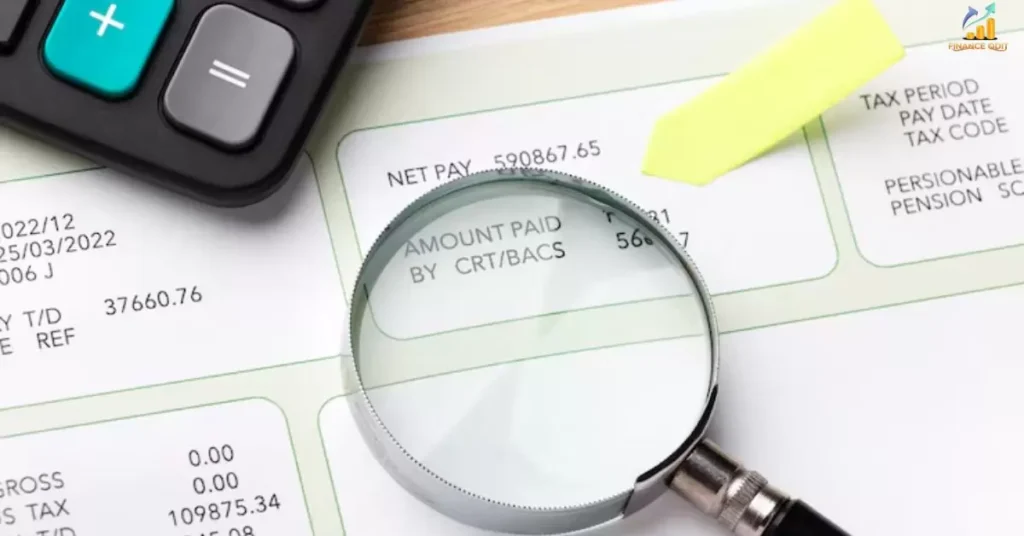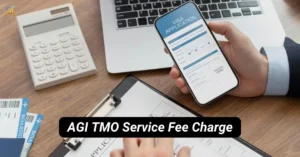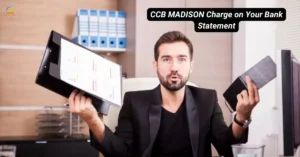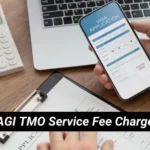Have you ever squinted at your bank statement, scratching your head over a cryptic entry that reads ‘FID BKG SVC LLC’ Moneyline? You’re not alone. This mysterious line item has left many Americans puzzled, wondering if it’s a legitimate charge or something more sinister. Today, we’re diving deep into the world of financial jargon to unravel this banking enigma and put your mind at ease.
What Does ‘FID BKG SVC LLC’ Stand For?

Let’s break it down piece by piece:
- FID: This stands for Fidelity, one of the largest investment companies in the United States.
- BKG: An abbreviation for “banking.”
- SVC: Short for “services.”
- LLC: Limited Liability Company, a common business structure.
When you join them all together, you get the phrase “Fidelity Banking Services LLC.” And what about the Moneyline? This means it is mainly meant to represent a credit line or any other monetary service offered by Fidelity.
Fidelity has diversified its portfolio into various fields of finance. They do not only deal with mutual funds and pension plans. They also provide banking services such as cash management accounts that combine checking account services with investment options.
Common Reasons for ‘FID BKG SVC LLC’ Moneyline Transactions
You might see this entry on your statement for various reasons. Let’s explore some of the most common:
- Investment Activities: In case if you have a Fidelity account and buying or selling stocks, bonds or mutual funds through it their transactions may appear under this label.
- Retirement Account Transactions: Contributions to or withdrawals from a Fidelity-managed 401(k) or IRA could appear this way.
- Brokerage Account Transfers: If you are moving money from or into your Fidelity brokerage accounts, you might notice this entry.
- Cash Management Services: The transactions could be labeled as ‘FID BKG SVC LLC’ Moneyline if you use Fidelity’s cash management account that works like checking account.
- Automatic Investments: Regular, scheduled investments into Fidelity funds could show up under this name.
“Understanding your financial transactions is like learning a new language. Once you crack the code, you’ll feel more in control of your money.” – Personal Finance Expert
How to Identify ‘FID BKG SVC LLC’ Moneyline on Your Statement
When you’re combing through your bank statement, here’s what to look for:
- Transaction Format: It usually appears as “FID BKG SVC LLC MONEYLINE” followed by a string of numbers.
- Dates and Amounts: These should correspond with any recent Fidelity-related activities you’ve conducted.
- Frequency: Depending on your investment habits, you might see this entry once a month or several times a week.

Pro Tip: Create a simple spreadsheet to track these entries. Include columns for date, amount, and the corresponding Fidelity activity. This can help you quickly reconcile your bank statement with your investment activities.
Read About: What is the MMBILL.com charge on your bank statement? Get the Details Here
Is ‘FID BKG SVC LLC’ Moneyline a Legitimate Transaction?
In most cases, yes. It’s a legitimate entry related to your Fidelity accounts. However, it’s always wise to stay vigilant. Here are some red flags to watch out for:
- Transactions you don’t recognize
- Amounts that seem off
- Multiple entries in rapid succession that you didn’t authorize
If something seems fishy, don’t panic. Here’s what to do:
- Check your Fidelity account for corresponding transactions.
- Contact Fidelity customer service directly (not through any links in emails or texts).
- If you still can’t verify the transaction, contact your bank immediately.
Remember, it’s better to be safe than sorry when it comes to your hard-earned money.
Managing Your Fidelity-Related Transactions

Taking control of your financial life means staying on top of these transactions. Here are some tips:
- Set Up Alerts: Most banks and Fidelity itself offer transaction alerts. Use them!
- Regular Check-Ins: Schedule a weekly “money date” with yourself to review your accounts.
- Use Financial Apps: Tools like Mint or Personal Capital can help you categorize and track these transactions automatically.
Case Study: The Curious Case of the Multiplying Moneylines
Meet Sarah, a 35-year-old software engineer who recently started investing with Fidelity. She noticed multiple ‘FID BKG SVC LLC’ Moneyline entries on her statement and panicked, thinking her account had been compromised.
After a deep breath and some investigation, she realized these entries corresponded to:
- Her monthly 401(k) contribution
- An automatic investment in a mutual fund
- A one-time transfer to her new Fidelity cash management account
The lesson? A little knowledge goes a long way in preventing unnecessary stress.
Read About: Discover Personalized Investing: Find Your Perfect Investment Strategy
Tips for Better Understanding Your Bank Statement
Becoming a bank statement detective can be empowering. Here are some strategies:
- Learn the Lingo: Create a personal “translation guide” for common entries on your statement.
- Use Color Coding: In your digital or physical records, assign colors to different types of transactions for quick visual reference.
- Question Everything: If you don’t understand an entry, make it a point to find out what it means.
Bank Statement Comprehension Checklist
| Task | Frequency | Why It Matters |
| Review all transactions | Weekly | Catch unauthorized charges quickly |
| Reconcile with investment accounts | Monthly | Ensure all transfers are accounted for |
| Update your transaction guide | As needed | Stay current with new types of entries |
| Audit your automatic payments | Quarterly | Avoid paying for services you no longer use |
The Bigger Picture: Financial Literacy and You

Understanding entries like ‘FID BKG SVC LLC’ Moneyline is just one piece of the financial literacy puzzle. Here’s why it matters:
- Fraud Detection: The better you know your statement, the quicker you’ll spot anomalies.
- Budgeting Accuracy: Correct categorization of expenses leads to more effective budgeting.
- Investment Tracking: Easily monitor your investment activities and their impact on your cash flow.
- Peace of Mind: Knowledge dispels fear. Understanding your finances reduces money-related stress.
“Financial literacy is not about being a math whiz. It’s about understanding the story your money is telling you.” – Financial Educator
Frequently Asked Questions
Can I remove these entries from my bank statement?
No, these are legitimate transaction records. However, you can usually customize how they appear in your online banking view.
Do I need a Fidelity account to see this on my statement?
Yes, these entries are specific to Fidelity services. If you don’t have a Fidelity account and see this, investigate immediately.
Are there fees associated with ‘FID BKG SVC LLC’ Moneyline transactions?
It depends on the specific service. Some transactions may incur fees, while others are free. Check your Fidelity agreement for details.
Final Thoughts
We’ve journeyed through the labyrinth of ‘FID BKG SVC LLC’ Moneyline and emerged with a clearer understanding. Let’s recap:
- It’s a legitimate entry related to Fidelity Investment services.
- It can represent various transactions, from investments to account transfers.
- Regular monitoring and reconciliation are key to staying on top of these entries.
Remember, your bank statement is more than just a list of numbers – it’s a snapshot of your financial life. By decoding entries like ‘FID BKG SVC LLC’ Moneyline, you’re taking an active role in your financial health.
Your Next Steps:
- Review your recent statements for this entry.
- Match it with your Fidelity activities.
- Set up alerts for future transactions.
- Share this knowledge with friends and family who might also be puzzled by their statements.
Financial empowerment starts with understanding. You’ve taken a significant step today in demystifying one aspect of your financial world. Keep learning, keep questioning, and keep growing your financial savvy.
Have you encountered other mysterious entries on your bank statement? Share your experiences in the comments below. Let’s continue to decode the language of finance together!

I am a professional finance blogger who simplifies complex financial topics, offering practical advice on personal finance and market trends. My blog helps readers make informed financial decisions with clear, accurate insights.











